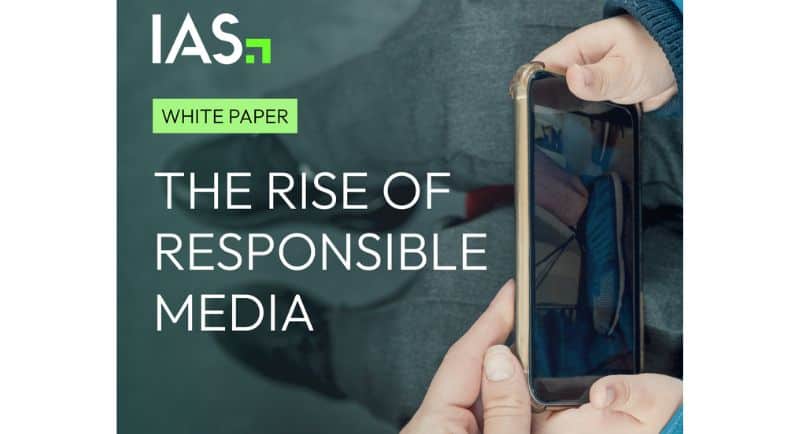Two-thirds of parents believe publishers and brands have a responsibility to create safe online environments, according to a study by the Integral Ad Science (IAS), with the majority (72%) stating brands have a moral imperative to advertise responsibly.
The findings form the basis of a study with MAGNA Media Trials, which explores the responsibility of advertisers and publishers to implement media strategies to protect both the public and brands online.
The ‘The Rise of Responsible Media’, study surveyed 1,500 parents and gathered qualitative feedback from publishers that examined how the entire digital ecosystem can promote responsible media to protect consumers.
IAS research previously revealed that 61% of consumers believe advertisers approve of the content near their ads, emphasizing a need for prioritizing a responsible media strategy in order to protect brand equity and reputation.
However, publishers’ noted that these concerns were leading to news proactively being eliminated from advertisers’ media buys in a bid to avoid news, violence, and DEI/ hate speech. The study noted that the omittance of news hurts all sides of digital media as it prevents the promotion of quality journalism and the public by avoiding news when it is true and valuable.
The research also highlighted the use of keyword blocklists, in either the URL, caption or video by marketers, which is used to avoid unpredictable or controversial topics online, but can block consumers from the online content they want to experience.
Kara Manatt, EVP of Intelligence Solutions at MAGNA Global, said while keyword blocking has been a simple and effective method for avoiding content that brands do not want to be associated with, it prevents advertisers from reaching engaged and diverse audiences by using an outdated approach.
“In our research with IAS, we found that blocklists prevent brands from reaching audiences that otherwise would be receptive, as well as negatively impact efforts to be more inclusive,” she said.
Cultural relevance also matters to 67% of consumers who say brands have a responsibility to reflect modern culture, according to IAS research on Diversity and Inclusion from 2023.
IAS and MAGNA tested diversity, equity, and inclusion (DEI) keywords to see how often this content is blocked by randomly sampling 31 million distinct URLs during October 2023.
The research found that 12% of URLs failed for keywords and were blocked using traditional blocklists. However, would have passed under IAS’s Diversity and Inclusions targeting segments.
The study identified a need for greater transparency to build trust. The qualitative data found publisher and platform partners recognise responsible media is “hugely important” and that “transparency and accountability are key to building trust,” according to the qualitative answers from the study.
The report highlighted that earning the trust of both the consumer and the advertiser is key. It noted that publishers in the study offered “multiple layers of brand safety protections, both internally built and externally leveraged.”
Publisher and platform respondents to the study highlighted third-party verification as “essential” as advertisers seek to scale brands in the “most brand-safe ways”.
The report said: “Brand safety products can help publishers attract advertisers with actionable data that allows them to optimize campaigns to be both safe and responsible.”
